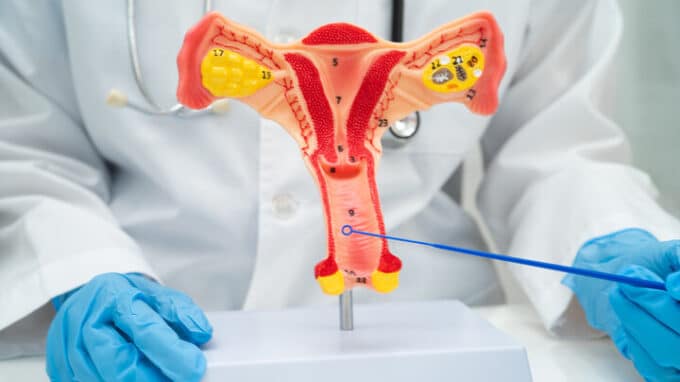A new analysis of available evidence led by researchers at the Harvard Pilgrim Health Care Institute suggests that female reproductive characteristics may be overlooked as risk factors contributing to later metabolic disorders. The study, titled “Reproductive risk factors across the female lifecourse and later metabolic health” was published in the journal Cell Metabolism.
Female Reproductive Characteristics and Chronic Metabolic Diseases
Metabolic health is characterized by optimal blood sugar, lipid, blood pressure, and body fat levels. Changes in these characteristics can lead to the development of type 2 diabetes or cardiovascular disease. “Our study provides insights into possible causes and risk factors for poorer metabolic function,” said lead author Amy R. Nichols, PhD, MS, RD, a research fellow at the Harvard Pilgrim Health Care Institute and the Harvard T.H. Chan School of Public Health. “Current findings linking certain female reproductive characteristics to chronic metabolic diseases suggest that screening for reproductive risk factors throughout life may be a first step in preventing or treating chronic metabolic diseases.”
These reproductive risk factors include early age at first menstruation, menstrual irregularities, development of polycystic ovary syndrome (PCOS), significant weight changes during pregnancy, abnormal blood sugar and lipid levels during pregnancy, and the severity and timing of menopausal symptoms. The authors point out that these characteristics may have common underlying mechanisms that lead to poorer metabolic health, including genetic influences, hormonal fluctuations, or body fat. Although recognizing these reproductive milestones as risk factors is a step toward better understanding the development of metabolic disorders, the research teams say further investigation is needed to understand these complex relationships.
Prevention Strategies
“Unraveling the relationship between risk factors and metabolic disorders is challenging,” said lead author Emily Oken, MD, MPH, professor at Harvard Medical School and chair of the Department of Population Medicine at Harvard Pilgrim Health Care Institute. “Clinical insights gathered in the healthcare setting across women’s reproductive lifespan can be critical for patient education, implementation of prevention strategies, and prevention of disease onset.”





